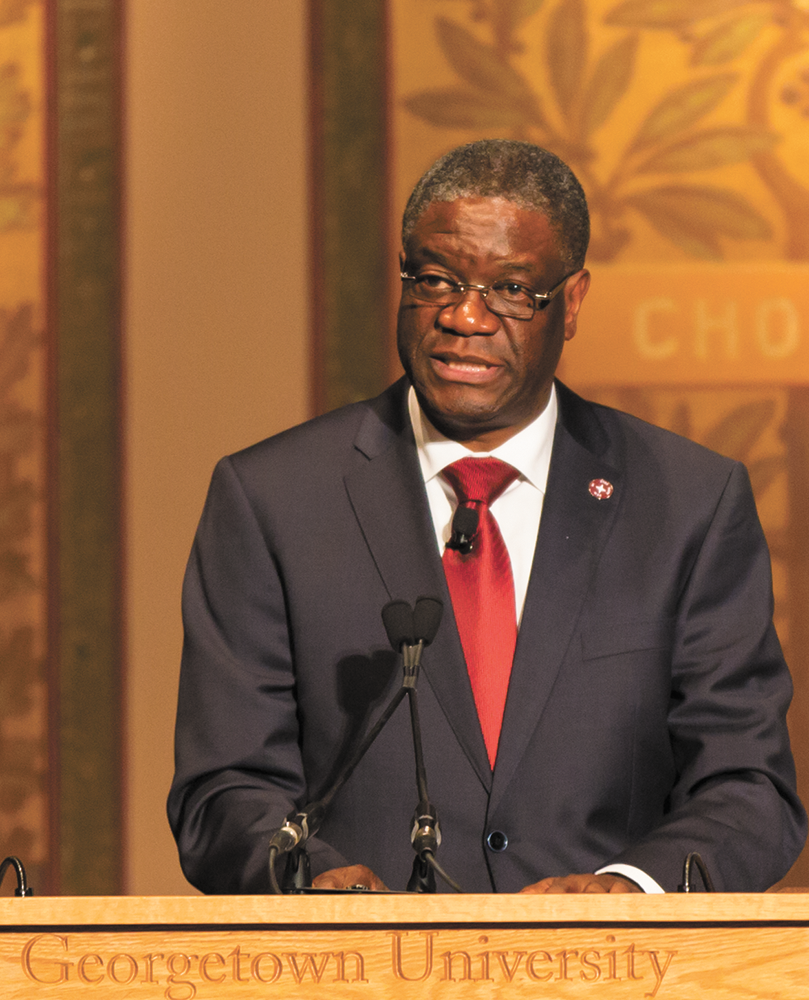
Mukwege delivers his award acceptance speech.
What does this award mean to you?
I think that for me it gives me a feeling that the voice of the women of Congo is heard, and this is very important when you are suffering, when you have oppressions to know that you have a support, to know that your voice is heard is very important, and that is my impression and I am very happy about it.
How do you find the strength to continue your work?
It’s not me, I can say that, my strength is in the fierce determination of survivors who really want to overcome the stigma, want to overcome their problem and the women are very strong, so you don’t have a choice. You just have to be with them and support them because all of the time my question for myself is, if I was in the same situation, what could happen to me? But I have patients that are very strong, that have fierce determination and the only thing that I can do is to support that.
Why did you choose the work of women and peace and security?
I think that it just found me on my way because I’m an OB/GYN. The question should be why I chose to be an obstetrician; it was only because I found that in my country that women were suffering a lot to give life and when I was a medical doctor, it was a shock to see that women were dying in giving life. This would not happen in France where I was, for example, it is not the same, so I decided to be an obstetrician and bring my piece to try and solve the problem. When I was just treating women in 1999, I decided to just get a small hospital where I could performs C-sections and help women, but the first women who came to the clinic was not for the C-section. She came because she was raped with extreme violence. After, I discovered that she was not just one but that it was many, and today we [have treated] more than 40,000 women. To see all these things and I could just understand that it was something planned to destroy the community, to destroy women, and women are the ones giving life, and when you destroy women you destroy many lives at the same time, so at this moment I thought that we can’t keep silent, we have to talk about it
What are your aspirations going forwards?
I think that I have one dream, to see sexual violence in conflict end everywhere. I met women in Bosnia, from Colombia, from Libya and it’s the same; why do women have to suffer in conflict? Most of the time, it’s men that are creating conflict, but who is suffering? It’s women and children and I think that who wants to can stand up and say sexual violence has to stop in the war in the conflict. I think it’s possible and really my dream is to see that this can happen. Last year, the world stood up and put a red line on chemical weapons and we could see that the world came together to say that is not acceptable. Why can we go accepting that women can be targets in war conflict and especially sexual violence as a weapon of war? It’s possible to stop it if men and women step up and say this is not acceptable, this is my dream.
This interview has been condensed for publishing.














